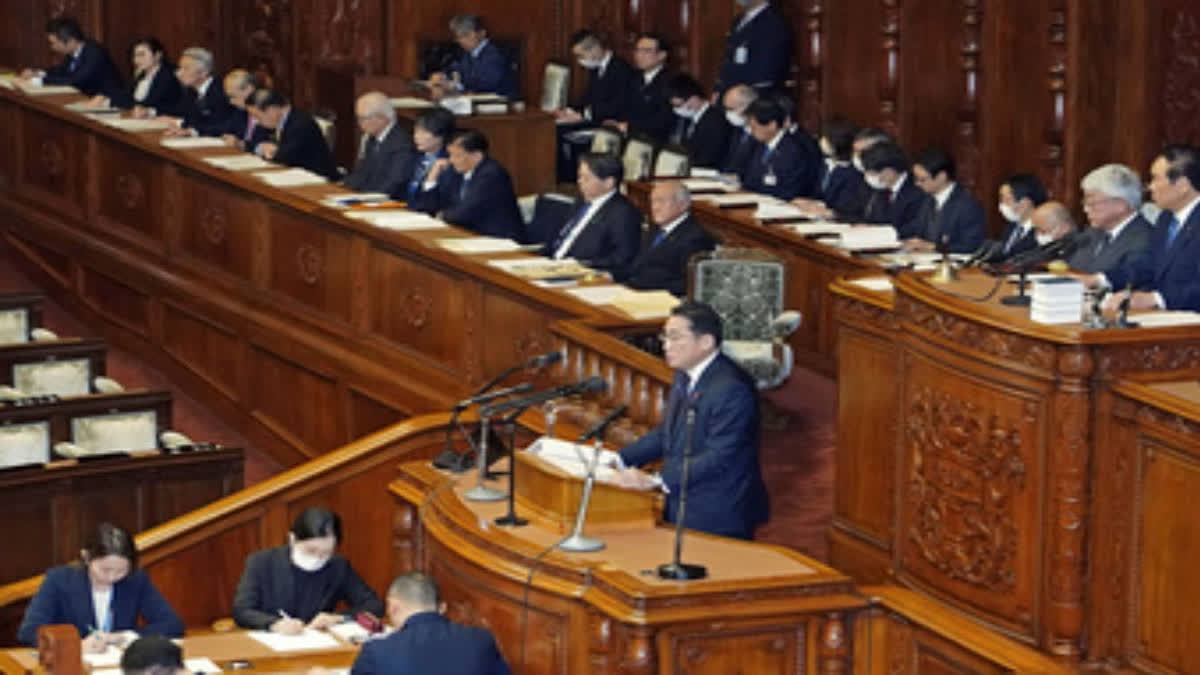Tokyo(Japan): Japan's Prime Minister Fumio Kishida stressed on Tuesday he was determined to make a clear break from money politics as he renewed an apology for the latest major corruption scandal in the governing party, which has eclipsed his key policies such as strengthening the military and Japan's alliance with the United States.
His policy speech had been due last week when the new parliamentary session opened, but Kishida broke with tradition and instead faced an intensive session on the scandal first. Kishida said he must admit that factions in the Liberal Democratic Party seemed to work for money and favours rather than policy, and he promised to lead reforms. I humbly regret, and made a determination to have policy groups make a complete break from money and personnel affairs, he said.
Kishida gave no further explanation about the scandal or how the money was spent. Opposition lawmakers have pressed for him to disclose details. Kishida said he needed to regain public trust, citing challenges including a deadly earthquake on New Year's Day and the economy. Kishida pledged to further expand and deepen the Japan-US relations, which he called the lynchpin of Japan's diplomatic policy, including by meeting President Joe Biden on a state visit to Washington in April. He said Japan needs to further strengthen Japan-US alliance to reinforce Japanese security and to play a greater role in regional peace and stability.
Under the national security strategy adopted in December 2022, Kishida announced plans to double defense spending in five years for drastic military buildup that include strike capability amid growing threat from China and North Korea. He did not clarify in his speech on Tuesday how his government plans to secure the funding. Public support ratings for Kishida's administration have dropped to around 20 per cent, and while his leadership tenure may be shortened, the LDP is most likely stay in power because the largely fractured opposition parties are not seen as a viable alternative.
The LDP has governed postwar Japan almost without interruption and has repeatedly had corruption scandals followed by promises for cleaner politics. The latest scandal centres on political funds raised through party event tickets bought by individuals, companies and organisations. Dozens of LDP lawmakers, most of them belonging to a faction previously led by assassinated former Prime Minister Shinzo Abe, were accused of systematically not reporting funds in violation of the Political Funds Control Law. The money was alleged to have gone into unmonitored slush funds. Prosecutors recently indicted 10 people, including three lawmakers, though cases were dropped against political heavyweights.
Kishida on Monday admitted at least 37 lawmakers are now correcting the accounting of their political funds. Governing lawmakers say proceeds from fundraising events provide key income to help cover election costs and other political activities, and deny they hid or pocketed unreported income. Experts say the Political Funds Control Law has many loopholes. Kishida has announced the dissolving of his faction following the scandal and he has established an internal task force to make reforms, but half of its members are linked to the scandal, raising questions about how much it can achieve. Critics say the real problem is not the factions but the behind-the-scenes dealings often based on lawmakers' connections with voters in their electoral districts. Kishida doesn't have to call a parliamentary election until 2025, but his party has set a leadership vote for September.
- " class="align-text-top noRightClick twitterSection" data="">
Read More



